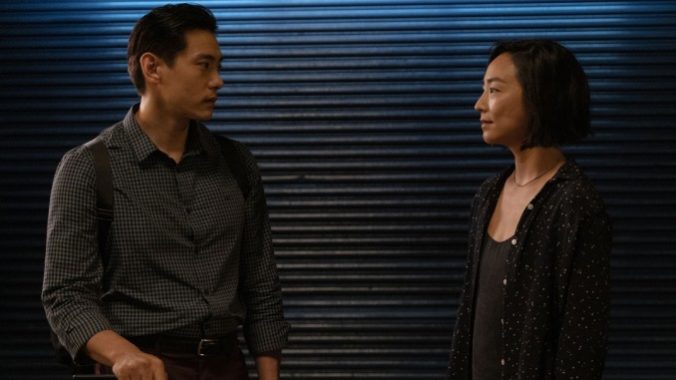The Brilliantly Bittersweet Past Lives Is Impossibly Romantic

Named partially for inyun—a Korean concept encompassing fate, intention and consequence, like a reincarnation-bridging butterfly effect—Past Lives’ bittersweet romance brings to mind Longfellow’s ships passing in the night. Not because the decades-spanning relationship between Greta Lee’s Nora and Teo Yoo’s Hae Sung is inconsequential, but because it is consequential in spite of its briefness and its emotional opacity. It reminds us that it is possible to encounter magic, conjured by the flow of everyday actions, when we pass people multiple times along our lives’ intertwining rivers. It reminds us that tethering your life to someone else’s to brave the current together is an act of defiant perseverance. Drawing from a long tradition of yearning romances, while showcasing debut writer/director Celine Song’s unique abilities with precise writing and delicate scene-crafting, Past Lives flows from decade to decade with ease, encompassing immigration, coming-of-age, and creative and romantic ennui—only to reach a heartrending acceptance of our exquisite inability to have it all.
Nora isn’t really caught between East and West, just as she is never really caught between her childhood crush Hae Sung and her husband Arthur (John Magaro). Whenever we meet her—whether as a kid, about to leave Hae Sung and Korea behind, or as a twentysomething connecting with him on Skype, or as a married woman hosting his visit to New York—she’s made her choices, or has had them made for her. As Past Lives takes us through its time jumps, we understand that the divergent desires pulling on Nora and Hae Sung are simply heightened versions of the forces acting on all of us. We all get through the day, magnetically suspended between our regrets and our realities.
Song’s strongest thematic thrust as she navigates the film’s three acts—spanning Nora’s childhood, loneliness, reconnection, loss and re-reconnection—is that this isn’t exceptional. The initial, underplayed childhood crush is chaperoned and shot with an emphasis on the physical, adult obstructions that keep kids apart (seatbelts, branching paths home, sculptures in the park that become impromptu jungle gyms) and the little things that bind kids together. Grades are a sticking point, as is crying. A head rests on a shoulder. Hands are held. But it can’t last. On Nora’s last day, Hae Sung can barely bring himself to look at her, let alone speak to her, on their forked walk back from school.
A dozen years later, the urban isolation and yearning of Wong Kar-wai permeates the screen as Nora crawls into her cramped apartment and Hae Sung pounds soju in a packed bar. But Past Lives excels because they aren’t positioned as eternally bound lovers who will always reunite, or as tragic heroes, their longing frozen on video chat like a digital Tantalus. Their awkward yet warm conversation, after Nora finds Hae Sung on Facebook, is one of easy familiarity. Lee’s nervous playwright keeps messing with her hair, and her Korean has gotten a little rusty. Yoo’s bottled-up engineer is as creaky as a smitten Tin Man. But Song’s shallow focus, allowing the words on their computer screens to blur, and tight framing draws them together in a tight hug, though they’re speaking across the world. But, just as Nora’s move loomed over her childhood, her ambition looms over this relationship. She can’t be waiting around, dividing her brain between time zones, when she’s got plays to write and dreams to achieve.
Another dozen years go by, bringing us to the era of Past Lives’ winning barroom prologue. Nora has married a fellow writer, while a break-up has led Hae Sung to finally make the trip to New York that he never could. As we return to the opening moments, where off-screen voyeurs try to guess the relationship between Nora, Arthur and Hae Sung, we realize that we’ve been lovingly duped into carrying the weight of three full lives on our shoulders. Despite seeing so little of them that two-and-a-half decades were able to be smooshed into an hour-forty-five, Song’s scalpel carves out exactly what we need to know.
-

-

-

-

-

-

-

-

-

-

-

-

-

-

-

-

-

-

-

-

-

-

-

-

-

-

-

-

-

-

-

-

-

-

-

-

-

-

-

-








































